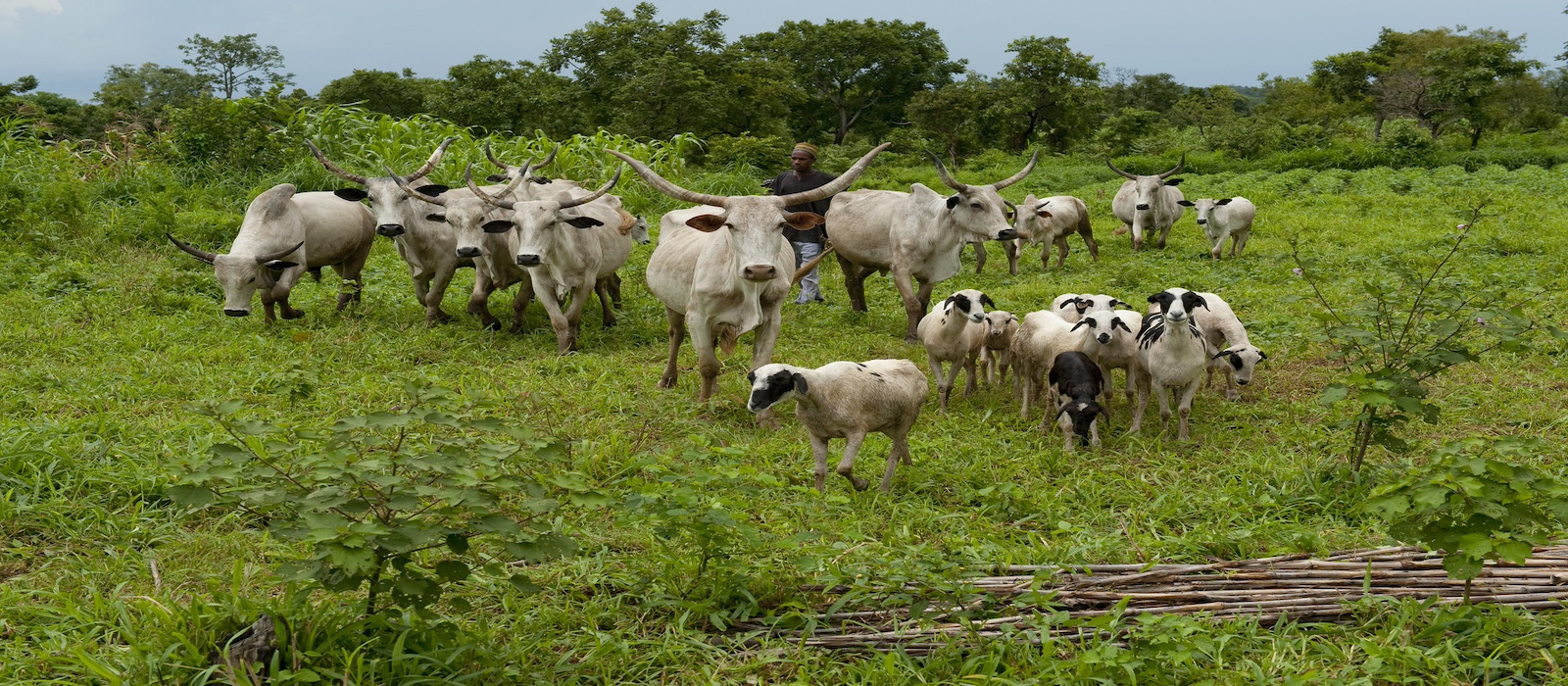“Shades of Gray”: The Impact of Pastoralists Violent Conflict Frames on Citizens’ Political Attitudes

September 2010 Shepherding in Ta Kuti village | World Bank Photo Collection
Study Context
The Government of Nigeria (GoN) has attempted to balance national security with politics in addressing the rising national conflict between nomadic pastoralist and sedentary farming communities. Some in the GoN frame the pastoralists’ conflict as seeking grassland or religious recognition, while others frame the conflict as pastoralists using unlawful force for political ends. Each frame could differentially affect how citizens support the violence in the short term, as well as potentially influence if the state can be effective in obtaining support for policy compromise and negotiations in the long term. This study tests that assumption, examining how civilians respond to the narrative framing of this specific conflict in Nigeria. The particular focus will be the effect of different framing designs on support for a peaceful resolution.
Study Design
Researchers surveyed 560 individuals selected across four enumeration areas in the Nasarawa state of Nigeria. Half of the participants were randomly assigned to a control arm, and the other half was distributed across the four treatment arms – within one of four single frame conditions. In these groups, participants were exposed to different types of framing about why the conflict exists, including causes related to economic competition, religion vs. secular, tribalism, and foreign terrorism.
In the first instance, the treatments primed respondents to critically think about the cause of the violent conflict between Fulani herders and sedentary farmers. It presented a narrative from the perspectives of Fulani herders regarding the reason for their migration from their homelands to other locations. Respondents were then administered a survey asking about why the conflict exists and the degree to which they agreed with different options for resolutions.
The two outcome variables measured were 1) acceptance of violence to defend one’s property from encroachment and 2) support for peaceful resolution in terms of policy compromise and negotiations.
Results and Policy Lessons
Findings indicated that providing information about climate change significantly increased support for policies promoting sedentary ranching and integrating herders into the community. This study contends that conceptualizing vulnerability as the primary driver of the herder-farmer conflict, as opposed to other narratives, enables new methods of mapping public opinion in favor of integrating both groups for peaceful coexistence in conflict zones.
Moreover, responses to the intervention indicated that fact-based arguments play an essential role in shaping the preferences of conflict-vulnerable individuals, as individuals exposed to the intervention were also prepared to commit financially to policy implementation efforts.
These results demonstrate the importance of educating locals about the root causes of the conflict, particularly climate-induced migration, to foster support for policies that address the vulnerability of herders and promote peaceful coexistence. The findings have implications for resolving the farmer-herder conflict in Nigeria and highlight the role of information in shaping policy preferences.

